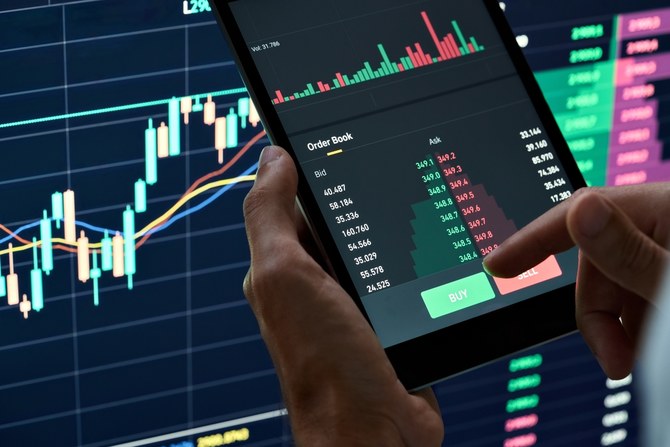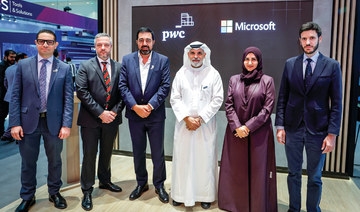LONDON: Global stocks struggled on Friday as investors pored over economic data for clues on the likelihood of more interest rate hikes and possible recession in the US as a new earnings season unfolded, according to Reuters.
The dollar edged up and looked set for its first weekly gain in more than a month.
Oil prices also crept higher but were still on track for a hefty weekly loss as softening US economic data and a rise in US gasoline inventories raised concerns about a recession and slower global oil demand.
The MSCI all country stock index was down 0.1 percent, though it remains about 8 percent firmer for the year.
The S&P Global composite purchasing managers’ index for the euro zone jumped to an 11-month high of 54.4 in April, well above the 50 mark separating growth and contraction.
PMI data showed Germany and France, motors of the EU economy, recovering, though there is a widening gap between weakening manufacturing and recovering services. British retail sales fell by a greater than expected 0.9 percent in March from February.
“Like last month, the (euro zone PMI) survey indicates that price pressures are easing. In manufacturing, cost pressures are falling quickly on the back of improving supply chain problems and weakening new orders,” ING bank said.
“Service sector inflationary pressures are also coming down, but at a slower pace due to rising wages. For the European Central Bank, this remains the largest concern in tackling inflation right now.”
The STOXX index of 600 European companies remained slightly weaker after the PMI data, though still on track for the fifth week of gains.
“The main narrative is that recession is coming but it’s taking its time,” said Kevin Thozet, investment committee member at Carmignac.
Recession is likely in the US during the end of the third quarter or during the fourth quarter, while consensus on the outlook in Europe is overly pessimistic in the short term, and too optimistic on the longer term, Thozet said.
Although China is recovering, it’s not expected to have the “traction capacity” to pull the rest of the world along with it that it had in previous economic cycles, Thozet added.
Wall Street futures were a touch lower as US stocks test the top of a range that has held for months.
Electric vehicle maker Tesla, which dropped nearly 10 percent on Thursday as its margins were squeezed, raised some US model prices a bit on its website even though it has been making cuts lately.
Asia shares mixed
MSCI’s broadest index of Asia-Pacific shares outside Japan fell 1 percent and was down about 1.7 percent for the week so far, its worst performance since bank stability worries gripped markets in the middle of March.
Japan’s Nikkei touched an eight-month high and was on track for a second consecutive weekly gain. Shares of Rakuten Bank jumped as much as 40 percent on their debut, as investors snapped up the downsized listing.
Japan’s consumer inflation held steady above the central bank’s target in March, data showed on Friday, keeping alive market bets that the Bank of Japan, which meets next week, could phase out its policy of enormous bond buying to pin down government bond yields.
“It looks like market participants have taken positions in preparation for policy changes ahead of the meeting,” said Nomura strategist Naka Matsuzawa, though he expects no change.
US Treasuries have also rallied, with two-year yields extending Thursday’s drop as investors turn for safety. Yields fall when prices rise. Two-year yields fell to 4.1518 percent.
The euro was little changed, while the yen was trading at 133.91 against the dollar, down slightly.
Brent futures for June delivery were slightly firmer at $81.22 a barrel, while West Texas Intermediate crude for June delivery gained 0.12 percent to $77.46 a barrel.
Elsewhere the mood dragged on bitcoin, which is back below $30,000, while the fall in yields has gold, which pays no income, straddling $2,000 an ounce, down 0.9 percent on the day.
In commodity markets traders are closely watching for producers’ and buyers’ response to Chilean plans to nationalize the lithium industry. Chile holds the world’s largest reserves.





















